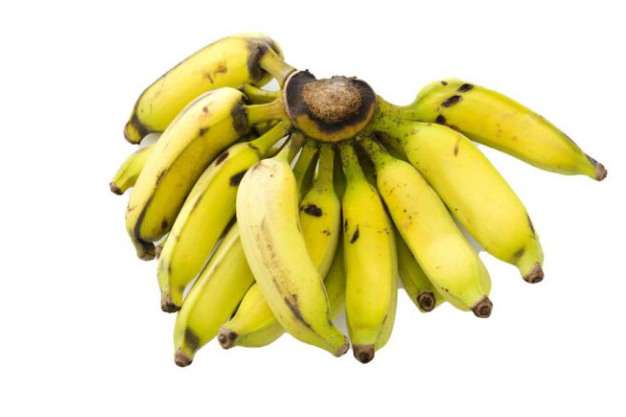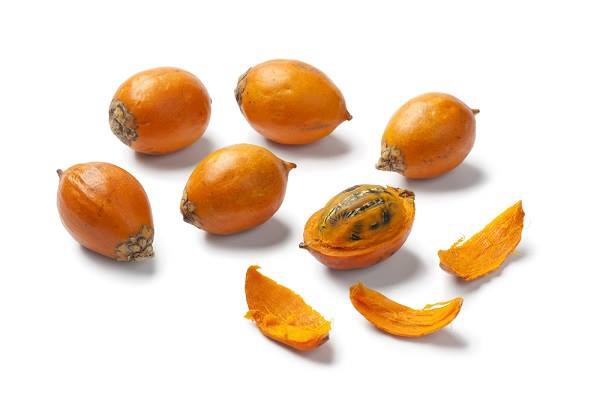The apple banana - its name is a combination of two very familiar fruits in stores - is a very exclusive trade product. With its unassuming size and eye-catching color, you can use it to surprise consumers or indulge gourmets. SAFE imports fruit and vegetables from Suriname and the Caribbean and has a diverse customer base. That lets the Dutch company offer the apple banana as an exclusive service product.
 Apple banana
Apple banana
SAFE stands for South American Food Express and is an importer, wholesaler, and distributor of non-perishable and fresh foods and flavorings from mainly Suriname and the Caribbean. Twice a week, they receive fresh fruit and vegetables flown in fresh from Suriname and other parts of the world. Freshness and quality are crucial to the company’s success, but a third essential aspect is their extensive product range. That is filled via close cooperation with brokers in the countries of origin.
Though SAFE focuses mainly on Suriname and the Caribbean, its client base varies enormously, from small Asian specialty stores and market vendors to renowned supermarket chains and everything in between. "The 'what farmers don't know, they won't eat' principle has now given way to 'what comes from afar is tasty'. These kinds of exotic products, thus, now appeal to a much wider audience. And SAFE brings the tropics to you," begins Sheldon Fraser, the company's commercial director.

Awarra
The apple banana is one of their fresh assortment's service products. "It's a tiny seasonal niche product. We market it alongside our standard mainstream range of Surinamese fruit and vegetables that we fly into the Netherlands. We reserve a few kilos on the flights; if there's still space, we fill it with other products. Our brokers know exactly what's available, and apple bananas are sometimes among those."
"When we know apple bananas are coming, our account managers know precisely which buyers are interested in them. When those people place orders, they are told this fruit’s in stock. We do that with many other seasonal products we source from the Caribbean, like Spanish limes, a lychee-type fruit, and awarra, a bright orange fruit from a palm species," Sheldon concludes.
 Awarra
Awarra
He points out the challenges around this kind of product's supply continuity, given things like the dependence on small-scale growers in the countries of origin, where most agriculture and horticulture are not mechanized. However, SAFE's flexible way of working allows the company to offer these seasonal fruits, thus providing variety.
Unlike regular bananas, apple bananas' compact size, characteristic shape, and a combination of sweetness and sour notes make them distinctive. That gives the fruit a refreshingly sweet flavor with a slight hint of apple, although it is otherwise unrelated to that fruit. It should also not be confused with mini bananas, a natural, smaller, sweeter version of regular bananas.
 Spanish limes
Spanish limes
The term' apple banana' refers to the Silk (genome AAB) banana variety. The Latin name for the apple banana is Musa Manzano. 'Manzana' is the Spanish word for apple. The variety produces smaller fruit than the standard Cavendish and Gros Michel banana varieties. The apple banana plant can reach a height of 3 to 3.5 meters and is mainly propagated vegetatively, as the female flowers are infertile. Six to 12 combs (hands) grow per cluster, with 16 to 18 bananas per comb. The fruits are about nine centimeters long and have a thin, hard-to-peel skin. The apple banana ripens quickly, changing from greenish-yellow to yellow to black. They taste best when well-ripened.
Sheldon Fraser
SAFE
Vlaardingenweg 53B
3044 CJ Rotterdam
T: +31 10 462 29 88
[email protected]
www.safebv.nl









